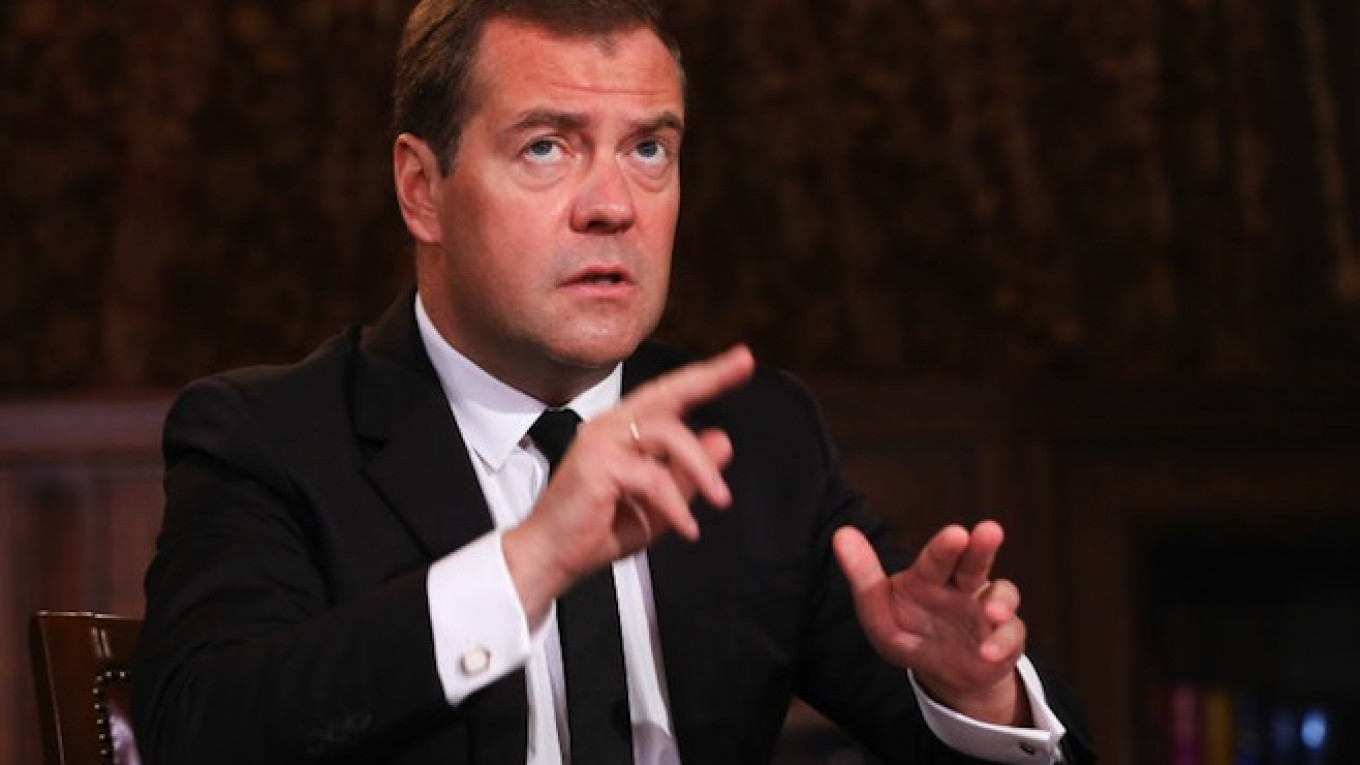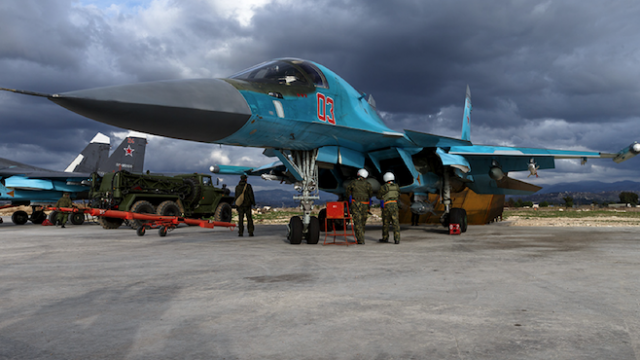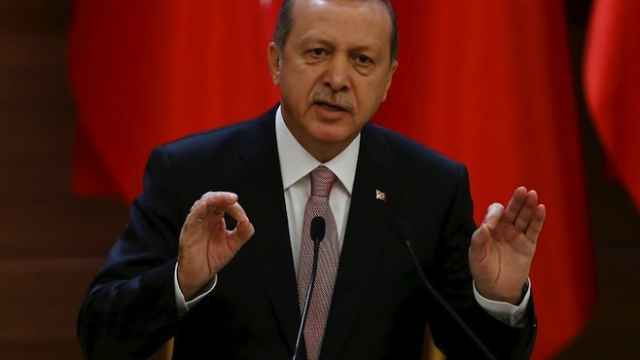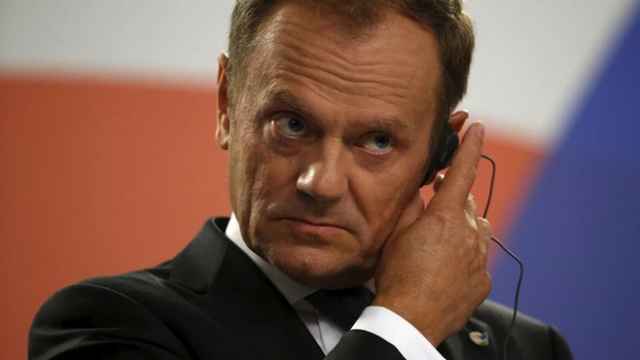The conflict in Syria may escalate into a “permanent” war to last for decades, if peace talks were to collapse or if foreign countries tried to intervene by deploying ground troops, Russian Prime Minister Dmitry Medvedev said in comments published on the Cabinet website Thursday.
Russia has been conducting air strikes in Syria — ostensibly to combat terrorist groups — since Sept. 30, 2015, but Moscow has insisted it has no intention to send ground troops to the country.
The prospects of such a development are viewed “badly” in Moscow, Medvedev said in an interview with Germany's Handelsblatt newspaper, according to a transcript of his remarks published on the Russian government website.
“A ground operation means drawing everybody who takes part in it into a war,” Medvedev said. “The Americans should consider — and the U.S. president, and our Arab partners [should consider] whether they want a permanent war.”
“Do they think they can quickly win it? That doesn't happen, particularly in the Arab world,” Medvedev said. “Everybody is fighting against everybody there. There is no monolithic force there, when you have [President Bashar] Assad and troops loyal to him, and then you have some anti-government group. It's much more complicated.”
The interview was published on the same day Saudi Arabia announced it was going to deploy ground troops in Syria to support the fight against Islamic State terrorist groups, according to a report by Deutsche Welle's Russian-language service.
The decision to deploy ground troops was “final and irrevocable,” a Saudi military commander was quoted by Deutsche Welle as saying Thursday.
Foreign ground troop involvement in Syria would lead to a war that would last “for years, and maybe for decades,” Medvedev said. “What purpose would that serve?”
But Moscow also has other reasons to dread foreign involvement on the ground in Syria.
Russia is a key ally of the Assad regime, and despite Moscow's claims that its air campaign is aimed against terrorists, officials in the United States, Turkey and Western Europe have argued that the bombings are intended to prop up Assad by targeting his political opponents, including Western-backed rebel groups.
Assad's forces have gained significant ground since the start of Russia's air campaign, but the involvement of another foreign force — especially one that does not count Moscow as an ally – could change the game again.
U.S. billionaire philanthropist George Soros argued this week that Washington and EU leaders were making a “grievous error” in viewing President Vladimir Putin's Russia as a potential ally in the fight against terrorism.
“Putin’s current aim is to foster the EU’s disintegration, and the best way to do so is to flood the EU with Syrian refugees,” Soros wrote in a column on the Project Syndicate website.
Medvedev argued that foreign involvement on the ground would lead to a larger-scale war, and suggested the conflict could extend beyond Syria's borders.
“It is necessary to apply harsh measures, which are being undertaken by Russia, and by the Americans, and even, despite all their reservations, by the Turks, to make everybody sit down at the negotiating table, instead of starting another war on our Earth,” Medvedev said.
Islamic State is a terrorist organization banned in Russia.
Contact the author at newsreporter@imedia.ru
A Message from The Moscow Times:
Dear readers,
We are facing unprecedented challenges. Russia's Prosecutor General's Office has designated The Moscow Times as an "undesirable" organization, criminalizing our work and putting our staff at risk of prosecution. This follows our earlier unjust labeling as a "foreign agent."
These actions are direct attempts to silence independent journalism in Russia. The authorities claim our work "discredits the decisions of the Russian leadership." We see things differently: we strive to provide accurate, unbiased reporting on Russia.
We, the journalists of The Moscow Times, refuse to be silenced. But to continue our work, we need your help.
Your support, no matter how small, makes a world of difference. If you can, please support us monthly starting from just $2. It's quick to set up, and every contribution makes a significant impact.
By supporting The Moscow Times, you're defending open, independent journalism in the face of repression. Thank you for standing with us.
Remind me later.






